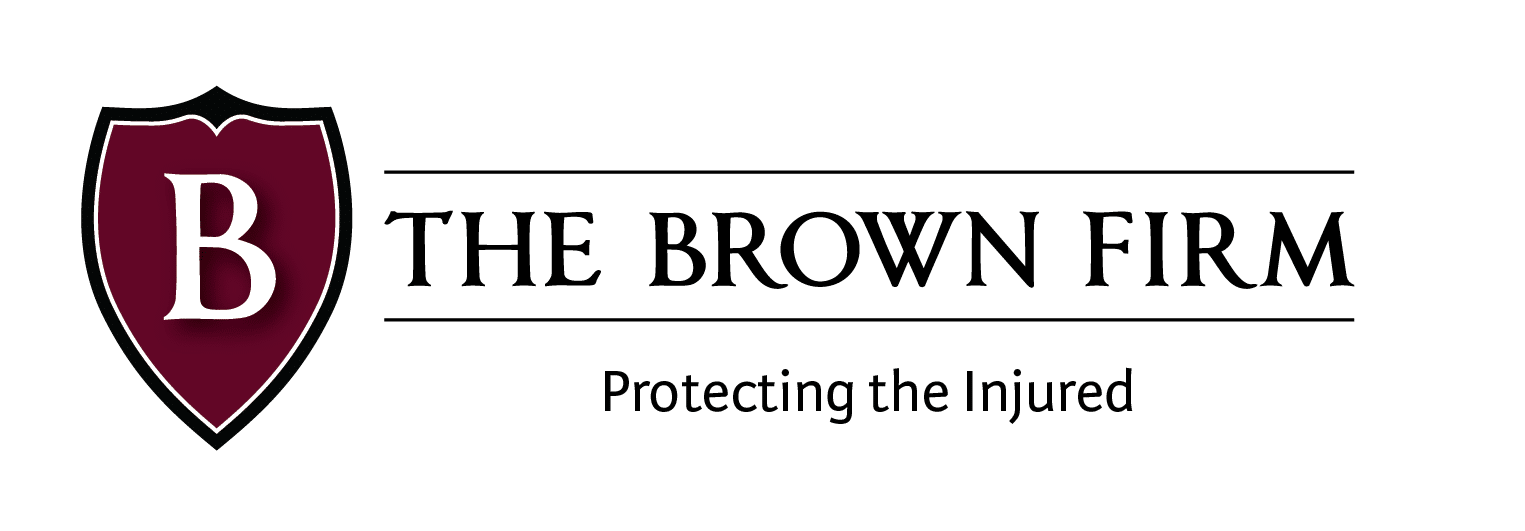What Does a Car Accident Demand Letter Look Like
Table of Contents
After suffering from the damages resulted by a car accident in Georgia, you are entitled to receive compensation form the person who caused the accident.
One of the most important things you should do to obtain this compensation is to file a claim with the liable person’s insurance company by writing a proper personal injury demand letter to summarize your claim and state the amount of compensation you are requesting as well as the evidence to support your request.
A well-written demand letter can be a crucial step in securing a fair settlement.
Here are some of the necessary information you should include for an effective demand letter.
I met with Harry Brown personally and he sat with me for 20 minutes at our initial consultation to explain everything. He even called after my surgery to see how I was doing. I met with him several more times after that and was kept informed about my case throughout. I highly recommend Harry Brown as an attorney.
Heading
Like any formal letter, a settlement demand letter needs to include a heading at the uppermost part of the letter. Place your name, address, phone number and email as well as the name of the insurance company you’re addressing, the claim adjuster’s name and title along with the company’s physical street address.
A disclaimer should also precede the main body of the letter. Many judges give settlement negotiations a form of qualified confidentiality so beginning your demand letter with the phrase “For Settlement Purposes Only” would prevent the at-fault party from using the letter against you if the claim ends up on trial.


Body
The body of your letter should begin with an introduction stating that you are ready to negotiate a claim settlement.
Relate the Facts
Start your letter by recounting the facts surrounding your accident including the weather, road conditions, the direction you were heading and where the at-fault driver was going, and any defensive maneuvers taken by you to avoid the collision.
This may seem pointless to include circumstances of the accident in your letter, but it’s essential to have a clear explanation of the physical facts of the accident and offer the insurance company your version of events and give the adjuster the type of testimony the jury would hear if the case proceeds to trial.
This should also indicate that the adjusters insured is liable for your injuries and damages. Police reports, any witness statements, and accident photos would help back up your version of events.
It would be better if you include a police report containing a citation against the other driver if possible as this information would be strong evidence of that their insured party’s negligence resulted in the accident that caused your injuries and any property damages.
Injuries and Medical Treatments
Explain in detail the list of injuries you’ve suffered as a result of the accident and all the medical treatment from the date of injury until you stopped actively treating the injury.
When describing your physical pain, begin with any pain or symptoms you felt at the scene of the accident and whether you received medical care from emergency services at the accident site.
Your description of diagnosis and treatment should also use appropriate medical terminology as you want the insurance adjuster to take you seriously. Also, include the names of physicians or clinics visited, the dates of the visits, and what occurred at those visits.
It’s always important to provide documentation of your claims for your medical treatment, including your medical records or correspondence from your medical doctor. It should specify any partial or total disability and its duration, including whether these injuries are long-term.
Your physician should also include in his or her report if you start to have trouble performing specific functions such as bathing or dressing as well as if the treatment for your physical problems is still ongoing.
Medical Expenses
You should also provide a detailed account of medical costs related to your medical treatment. Even if your health insurance company paid for your medical bills, an itemized lists of all medical bills such as the prescribed medication, devices like crutches, and even the ambulance should be included in your letter.
The medical expenses are a reason why demand letters shouldn’t be sent to insurance companies until the end of your treatment or at least until the doctors inform you that your condition is sufficiently stable. You may not have a full account of the total costs of your medical treatment if the demand letter is sent too early.
To back up your claim, attach copies of any medical bills which you can obtain from your treatment providers.
Check Out this Related Post: Leading Cause of Car Accidents
Emotional Damage
Emotional distress damages are typically only awarded in cases of severe injuries. As part of pain and suffering damages, a statement describing emotional distress that has resulted from the accident such as anxiety, depression, or post-traumatic stress disorder (PTSD) should be part of your claim.
Like any other claim, your emotional damages must be supported by relevant documentation and evidence like medical records and a doctor’s note.
Lost Wages
Provide information on the total amount of income you lost because of your inability to work. You may be entitled to recover the wages you lost because of the accident. Your employer can give you the wage information needed to verify your income and amount of days of work missed.
If you’re a temporary worker or self-employed, you can provide detailed information on the calculation of the amount of wages lost.
Your Settlement Demand Amount
Once you’ve explained in detail the facts and circumstances of the accident, injuries and emotional damages, medical treatments and expenses as well as the lost wages, sum up the letter with a specific demand of compensation for all your combined losses.
It’s only natural for your demand amount to be significantly higher than the reasonable amount you can expect to recover. Your initial demand needs to be high, so you’ll have room to negotiate.
Once you’ve already outlined the elements you plan to address in your demand letter, consider using language and detailed accounts to emphasize the seriousness of the accident, but make sure it doesn’t exaggerate your injuries or the accident itself. Your demand letter should also be free from errors and easy to understand.
As mentioned earlier, your claims should be supported with documentation. Whether it’s the medical bills or police report, make sure to send copies with your demand letter, but keep the originals. The chances you will get the money owed to you will be higher if your claim is reliable, reasonable, and documented.
Ready to Talk to a Lawyer Who Has Your Back?


Getting Legal Advice to Construct the Perfect Demand Letter
After all of that, when you feel like you’re not confident with the letter you’ve written or if you need legal advice about your situation, talk to an experienced attorney after a car accident at The Brown Firm.
Contact us at (912) 200-9755
Our Recent Personal Injury Articles
Overloaded Truck Accidents in Georgia: Who’s Responsible?
A bus caught fire on Friday night at Ashford Dunwoody Road and I-285 West, causing delays during rush hour. The ramp was closed, and firefighters were able to put out...
The Most Common Causes of Teenage Driver Accidents
A bus caught fire on Friday night at Ashford Dunwoody Road and I-285 West, causing delays during rush hour. The ramp was closed, and firefighters were able to put out...
Postal Worker Dog Attacks: Protecting the Rights of Delivery Personnel
A bus caught fire on Friday night at Ashford Dunwoody Road and I-285 West, causing delays during rush hour. The ramp was closed, and firefighters were able to put out...
The Impact of Texting and Driving Laws on Car Accident Liability in Atlanta
A bus caught fire on Friday night at Ashford Dunwoody Road and I-285 West, causing delays during rush hour. The ramp was closed, and firefighters were able to put out...
Pedestrian Accidents on Crosswalks in Savannah: Proving Driver Negligence
A bus caught fire on Friday night at Ashford Dunwoody Road and I-285 West, causing delays during rush hour. The ramp was closed, and firefighters were able to put out...
Gearing Up for Survival: The Importance of Proper Motorcycle Safety Equipment
A bus caught fire on Friday night at Ashford Dunwoody Road and I-285 West, causing delays during rush hour. The ramp was closed, and firefighters were able to put out...
Why Nursing Home Staff Shortages Leave Residents Vulnerable to Potential Mistreatment
A bus caught fire on Friday night at Ashford Dunwoody Road and I-285 West, causing delays during rush hour. The ramp was closed, and firefighters were able to put out...
When Taxi Drivers Cause Pedestrian Accidents: Legal Options for Injured Parties
A bus caught fire on Friday night at Ashford Dunwoody Road and I-285 West, causing delays during rush hour. The ramp was closed, and firefighters were able to put out...
Bicycle Accident Settlements – What Compensation Can You Expect?
A bus caught fire on Friday night at Ashford Dunwoody Road and I-285 West, causing delays during rush hour. The ramp was closed, and firefighters were able to put out...
Nursing Homes Overprescribing Drugs to Silence and Subdue Patients
A bus caught fire on Friday night at Ashford Dunwoody Road and I-285 West, causing delays during rush hour. The ramp was closed, and firefighters were able to put out...
Contact The Brown Firm
Get the Answers and Compensation You Deserve
You’ll notice the difference when you contact The Brown Firm! Our local dedicated attorneys want to help you recover and rebuild.
Schedule your free consultation by calling (800) 529-1441 or completing our simple online form.

